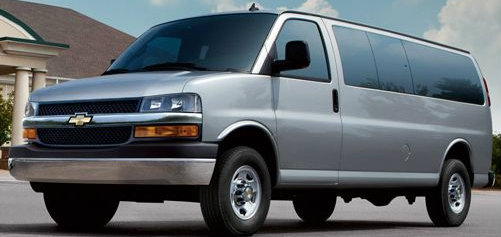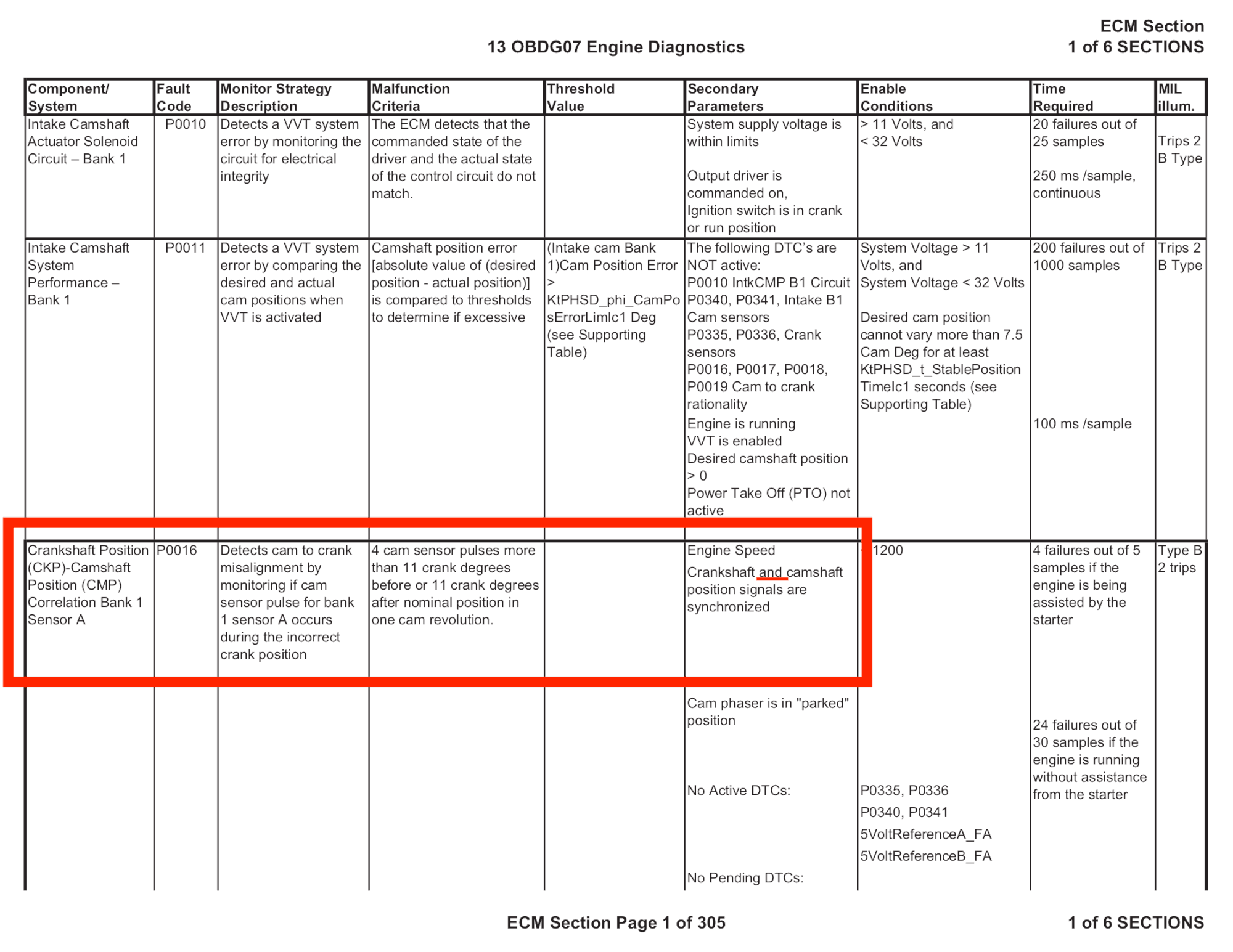The ELM/Torque thread
#101
I never said that phones or towers did that. It is possible to calculate the approximate location of a mobile device using relative signal strengths with multiple towers. I know this because I worked for a national mobile service provider, and law enforcement made daily visits to subpoena this kind of information.
GPS location receivers? No.
Because they want you to pay for Onstar.
Emissions information is important at ALL speeds.
Last edited by mountainmanjoe; July 23rd, 2019 at 12:19 AM.
#102
#103
I guess you haven't heard of the telemetry recorder inside your inflatable restraint module.
https://en.wikipedia.org/wiki/Event_...data_recorders
https://en.wikipedia.org/wiki/Event_...data_recorders
#105
Entertaining AND informative. Be sure and share your popcorn, Beau.
I stand corrected on the legal requirement, but you're still wrong on some of this. While accident data is stored, and accessed through the OBD port, it is not part of diagnostic protocols, and even the heavy duty OBD devices that the dealer uses doesn't access that data. The data produced for diagnosis is limited to codes, and doesn't have any method of saying that "XYZ happens at 2000 rpm, or 45 mph" Maybe some day. And while emissions data is released through the OBD port, speed is not a factor that is recorded or relayed. I live in an area where my vehicles are checked for emissions every two years. Originally, the vehicle was chocked up in a Dynomometer type machine, and emissions were correlated to speed. This was later replaced by a pickup tube placed in the exhaust pipe, and tested at idle. Now, it is done by the OBD port, and RPM or speed isn't a factor.
GPS location receivers in cell phones YES. It's how any navigation or mapping app locates you. ALL cellphones, even old style flip phones. It is how properly equipped E911 call centers can locate you
I stand corrected on the legal requirement, but you're still wrong on some of this. While accident data is stored, and accessed through the OBD port, it is not part of diagnostic protocols, and even the heavy duty OBD devices that the dealer uses doesn't access that data. The data produced for diagnosis is limited to codes, and doesn't have any method of saying that "XYZ happens at 2000 rpm, or 45 mph" Maybe some day. And while emissions data is released through the OBD port, speed is not a factor that is recorded or relayed. I live in an area where my vehicles are checked for emissions every two years. Originally, the vehicle was chocked up in a Dynomometer type machine, and emissions were correlated to speed. This was later replaced by a pickup tube placed in the exhaust pipe, and tested at idle. Now, it is done by the OBD port, and RPM or speed isn't a factor.
GPS location receivers in cell phones YES. It's how any navigation or mapping app locates you. ALL cellphones, even old style flip phones. It is how properly equipped E911 call centers can locate you
#106
I don't think you even access it through the DLC. I think you have to remove the module from the vehicle and hook it up to some big fancy Bosch device who's price has lots of zeros in it. Definitely not consumer stuff. you get a graph of all driver inputs (brake pedal, accelerator pedal application, steering angle etc.), vehicle speed, engine parameters, accelerometers, airbags, roll-over and impact sensors etc etc. All with millisecond accuracy.
When you get DTC, freeze frame data includes speed as well as many other parameters. Speed and RPM are both "relayed" to the DLC via OBD protocols. Speed is essential information for diagnosing problems. What you are saying is nonsense.
Right, because the vehicle computer is now able to do everything the testing center had to do before.
Yes it is. That's why the emissions diagnostic "drive cycle" includes these parameters. The dynamometer measures speed does it not? Please instead of just spewing BS here spend a few minutes to look it up. It's easy to find.
From the 90's? No, and you can't prove it.
Right, because the vehicle computer is now able to do everything the testing center had to do before.
Yes it is. That's why the emissions diagnostic "drive cycle" includes these parameters. The dynamometer measures speed does it not? Please instead of just spewing BS here spend a few minutes to look it up. It's easy to find.
From the 90's? No, and you can't prove it.
Last edited by mountainmanjoe; July 23rd, 2019 at 11:32 PM.
#107
Tell me which 6 character OBD code cites a specific speed or RPM. Difficult, at best, using a 6 character code. You have to read it live to get these things, which proves the info is at the OBD port, which if you remember, started this whole diatribe. GPS isn't there, at least on my 2016, but I don't have NAV. Torque has a PID for it, but no data is sent to the ELM.
A cop at an accident scene doesn't have a "big fancy Bosch device" to read what happened. Since ABS became a factor, police need to know specific info regarding a wreck.
As for a dynomometer emissions test, they stopped doing that 20 or more years ago. Inspections in Virginia (Maryland as well. Washington D.C. handles it through the government. D.C.and surrounding suburbs are required to do this to get tags) are done by your local gas station, so a dyno was cost prohibitive. It was replaced with a "sniffer" type of test until about 10 years ago. And even with the Dyno, it still "sniffed". Now, they just plug up to the OBD port. I don't know if the engine is running, but if it is, it's at idle.
Then there's the GPS thing, which you fail to understand. When you boot up GoogleMaps, or Waze, just how does it know where you are? Triangulation? That's hilarious. Back in the 90s, I worked for a Motorola commercial radio company, selling two-way radio. We also sold Nextel phones, and had the unique situation of renting space to Nextel for a tower site. I was psyched when they turned that service on. It was the last time I ever wore a watch. But it was also so cool that I could bring up my Lat/Lon on the flip handset.
But to the proof. Here's an interesting article from 2006;
https://www.npr.org/templates/story/...toryId=6097216
And then there's the The United States Federal Communications Commission's (FCC) Enhanced 911 (E911) program, which is outlined by The Wireless Communications and Public Safety Act of 1999 (911 Act). I didn't know that it became a requirement in 2007. Read this;
https://www.fcc.gov/general/9-1-1-and-e9-1-1-services
You asked for proof.
A cop at an accident scene doesn't have a "big fancy Bosch device" to read what happened. Since ABS became a factor, police need to know specific info regarding a wreck.
As for a dynomometer emissions test, they stopped doing that 20 or more years ago. Inspections in Virginia (Maryland as well. Washington D.C. handles it through the government. D.C.and surrounding suburbs are required to do this to get tags) are done by your local gas station, so a dyno was cost prohibitive. It was replaced with a "sniffer" type of test until about 10 years ago. And even with the Dyno, it still "sniffed". Now, they just plug up to the OBD port. I don't know if the engine is running, but if it is, it's at idle.
Then there's the GPS thing, which you fail to understand. When you boot up GoogleMaps, or Waze, just how does it know where you are? Triangulation? That's hilarious. Back in the 90s, I worked for a Motorola commercial radio company, selling two-way radio. We also sold Nextel phones, and had the unique situation of renting space to Nextel for a tower site. I was psyched when they turned that service on. It was the last time I ever wore a watch. But it was also so cool that I could bring up my Lat/Lon on the flip handset.
But to the proof. Here's an interesting article from 2006;
https://www.npr.org/templates/story/...toryId=6097216
And then there's the The United States Federal Communications Commission's (FCC) Enhanced 911 (E911) program, which is outlined by The Wireless Communications and Public Safety Act of 1999 (911 Act). I didn't know that it became a requirement in 2007. Read this;
https://www.fcc.gov/general/9-1-1-and-e9-1-1-services
You asked for proof.
Last edited by StanVan; July 24th, 2019 at 10:02 PM.
#108
You said 90's. Before GPS was uncrippled by the gov't in 2000, you couldn't get better than 100m accuracy.
"Radiolocation in cellular telephony uses base stations. Most often, this is done through triangulation between radio towers."
"Back in 1999, there were no smartphones with GPS; five years later still fewer than 10 different models"
https://www.gpsworld.com/wirelesssma...volution-9183/
So where are all these 90's flip phones with unassisted GPS?
Last edited by mountainmanjoe; July 25th, 2019 at 1:46 AM.
#109
Selective Availability limited GPS to 50m accuracy, 100m vertically. Your GPS World article focused on GSM, a system that never really caught on here in the U.S. But really, there were no smartphones at all in '99. There were phones that had PDAs, but no real internet capabilities. The Blackberry didn't come out until '03.
At this point, I believe you're just being difficult, so I'm done with you on this. First, you deny that cellphones have GPS, and now you do. I can't prove that they were around in the 90s because most reviews of handsets from then didn't go into enough detail to state such, and few reviews from then even exist. I just know I had one, along with a DB9 serial cable that would plot my location on my Windows 98 laptop.
I'm out of popcorn.
At this point, I believe you're just being difficult, so I'm done with you on this. First, you deny that cellphones have GPS, and now you do. I can't prove that they were around in the 90s because most reviews of handsets from then didn't go into enough detail to state such, and few reviews from then even exist. I just know I had one, along with a DB9 serial cable that would plot my location on my Windows 98 laptop.
I'm out of popcorn.
#110
No. I claimed that 90's phones didn't have GPS. I still stand behind that.
Should be easy enough if it were true.
In conclusion, to bring it all back to where it was derailed:
Vans with Onstar have a dedicated GPS location receiver.





